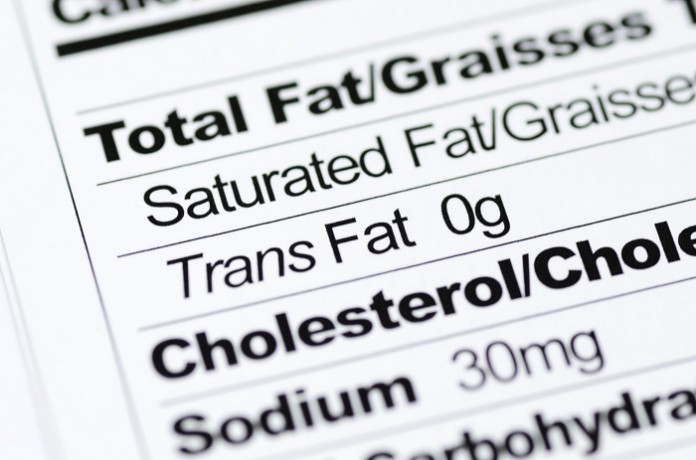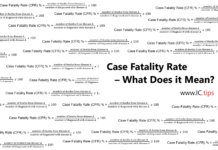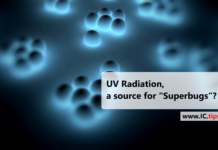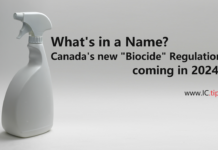Abstract:
This article provides some information about the current state of trans fats regulation in the United States and the European Union.
Main Article:
Regulation in the United States (USA)
The United States Food and Drug Administration (FDA) released it’s final determination that Partially Hydrogenated Oils (PHOs) are not Generally Recognized as Safe (GRAS). The determination is based on extensive research into the effects of PHOs, as well as input from stakeholders during the public comment period.
PHOs are the primary dietary source of artificial trans fat in processed foods. The FDA’s viewpoint is that removing PHOs from processed foods could prevent thousands of heart attacks and deaths each year.
Implementation
The FDA has set a compliance period of three years. This will allow food companies to either reformulate products without PHOs and/or petition the FDA to permit specific uses of PHOs. Many companies have already been working to remove PHOs from processed foods and the FDA anticipates that many may eliminate them ahead of the three-year compliance date.
It’s important to note that trans fat will still be present in some foods because it occurs naturally in small amounts in meat and dairy products, and is present at very low levels in other edible oils.
The FDA encourages consumers seeking to reduce trans fat intake to check the ingredient list of a food product to determine whether or not it contains partially hydrogenated oil.
Background
In January 2006, the FDA required the food industry to declare the amount of trans fat in food on the Nutrition Facts label. FDA data indicates that many processed foods have been reformulated to reduce the amount of trans fat since the requirement was instituted, but a substantial number of products still contain PHOs.
One of the FDA’s core regulatory functions is ensuring that food, including all substances added to food, is safe. In November 2013, the FDA made a preliminary determination that PHOs are not “generally recognized as safe” (GRAS) for use in food. The FDA opened a 60-day public comment period on this measure to solicit data and information on a number of issues, including:
- Whether the FDA should finalize its tentative determination that PHOs are no longer GRAS.
2. How long it would take producers to reformulate food products to eliminate PHOs.
The comment period was then extended an additional 60 days and closed March 8, 2014.
The final determination was released June 16, 2015. This determination is based on extensive research into the effects of PHOs, as well as input from all stakeholders received during the public comment period (see Final Determination Regarding Partially Hydrogenated Oils, June 2015).
To learn more about trans fat, see also the FDA’s Trans Fat page.
Regulation in the European Union (EU) Inarticle 30.7 of the FIC Regulation (“Food Information to Consumers” Reg. (EU) n. 1169/2011) it states that “by 13 December 2014, the Commission, taking into account scientific evidence and experience acquired in Member States, shall submit a report on the presence of trans fats in foods and in the overall diet of the Union population. The aim of the report shall be to assess the impact of appropriate means that could enable consumers to make healthier food and overall dietary choices or that could promote the provision of healthier food options to consumers, including, among others, the provision of information on trans fats to consumers or restrictions on their use. The Commission shall accompany this report with a legislative proposal, if appropriate.”
Today the report has still not been submitted and the Commission has been deeply criticized, especially from consumers associations for the unexpected delay. As a matter of fact, in this situation, it is not even possible to declare voluntarily the trans fat value in the EU format of the nutrition declaration, while in the USA it has been mandatory since 2006.
Here below, you can find the definition of Trans fatty acids (TFA) and the advice given by the European Food Safety Authority (EFSA) in a 2010 Scientific Opinion:
“Trans fatty acids are not synthesized by the human body and are not required in the diet. Therefore, no Population Reference Intake, Average Requirement, or Adequate Intake is set. Consumption of diets containing trans-monounsaturated fatty acids, like diets containing mixtures of saturated fatty acids, increases blood total and LDL cholesterol concentrations in a dose-dependent manner, compared with consumption of diets containing cis-monounsaturated fatty acids or cis-polyunsaturated fatty acids. Consumption of diets containing trans-monounsaturated fatty acids also results in reduced blood HDL cholesterol concentrations and increases the total cholesterol to HDL cholesterol ratio. The available evidence indicates that trans fatty acids from ruminant sources have adverse effects on blood lipids and lipoproteins similar to those from industrial sources when consumed in equal amounts. Prospective cohort studies show a consistent relationship between higher intakes of trans fatty acids and increased risk of coronary heart disease. The available evidence is insufficient to establish whether there is a difference between ruminant and industrial trans fatty acids consumed in equivalent amounts on the risk of coronary heart disease. Dietary trans fatty acids are provided by several fats and oils that are also important sources of essential fatty acids and other nutrients. Thus, there is a limit to which the intake of trans fatty acids can be lowered without compromising adequacy of intake of essential nutrients. Therefore, the Panel concludes that trans fatty acids intake should be as low as is possible within the context of a nutritionally adequate diet. Limiting the intake of trans fatty acids should be considered when establishing nutrient goals and recommendations.”
References:
FDA, Tentative Determination Regarding Partially Hydrogenated Oils; Request for Comments and for Scientific Data and Information https://www.federalregister.gov/articles/2013/11/08/2013-26854/tentative-determination-regarding-partially-hydrogenated-oils-request-for-comments-and-for Access 2015-11-01
EU Council “Food Information to Consumers” Reg. (EU) n. 1169/2011 http://eur-lex.europa.eu/legal-content/EN/TXT/PDF/?uri=CELEX:32011R1169&from=en Access 2015-11-01
European Food Safety Authority (EFSA). Scientific Opinion on Dietary Reference Values for fats, including saturated fatty acids, polyunsaturated fatty acids, monounsaturated fatty acids, trans fatty acids, and cholesterol1
http://www.efsa.europa.eu/it/search/doc/1461.pdf Access 2015-11-01












